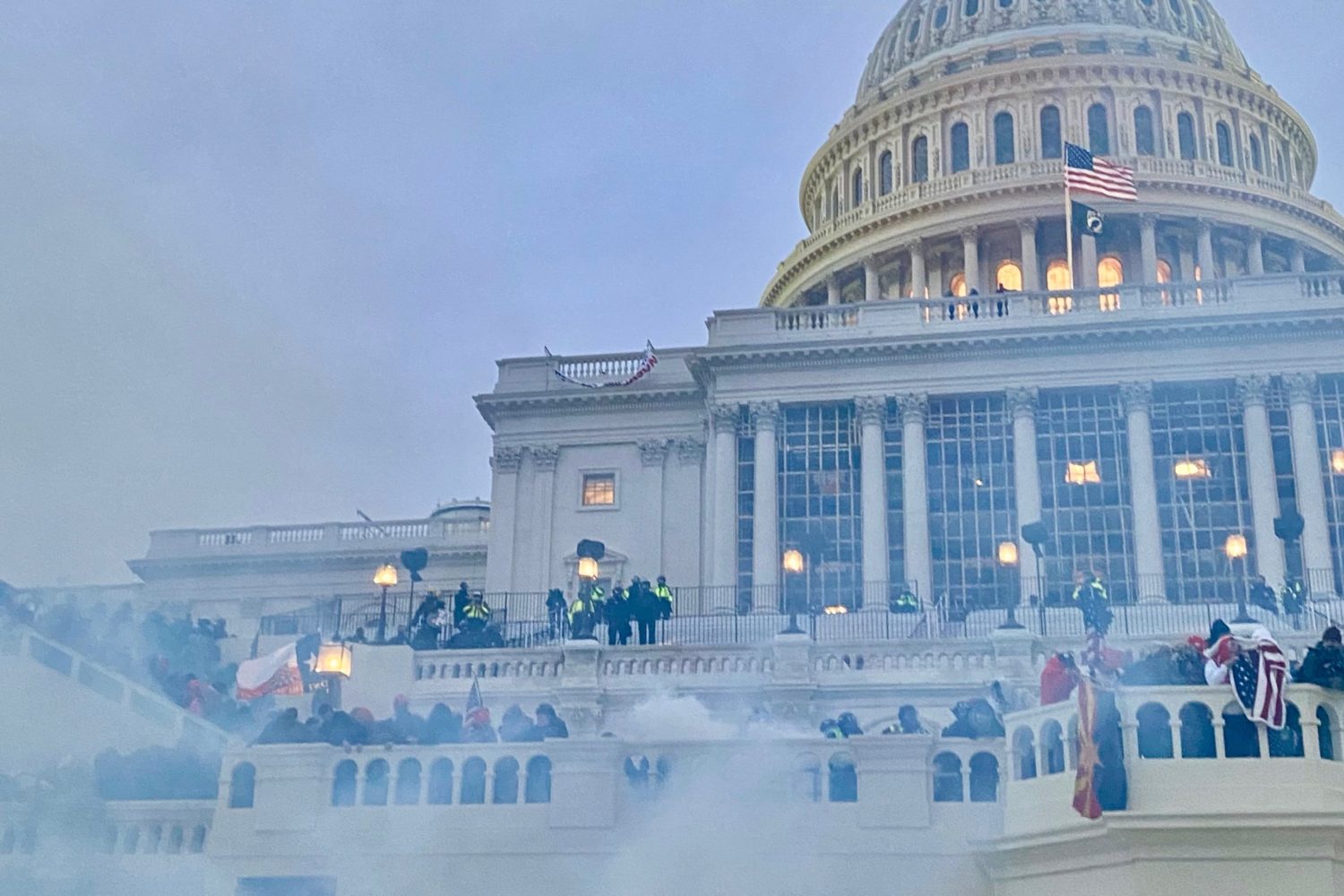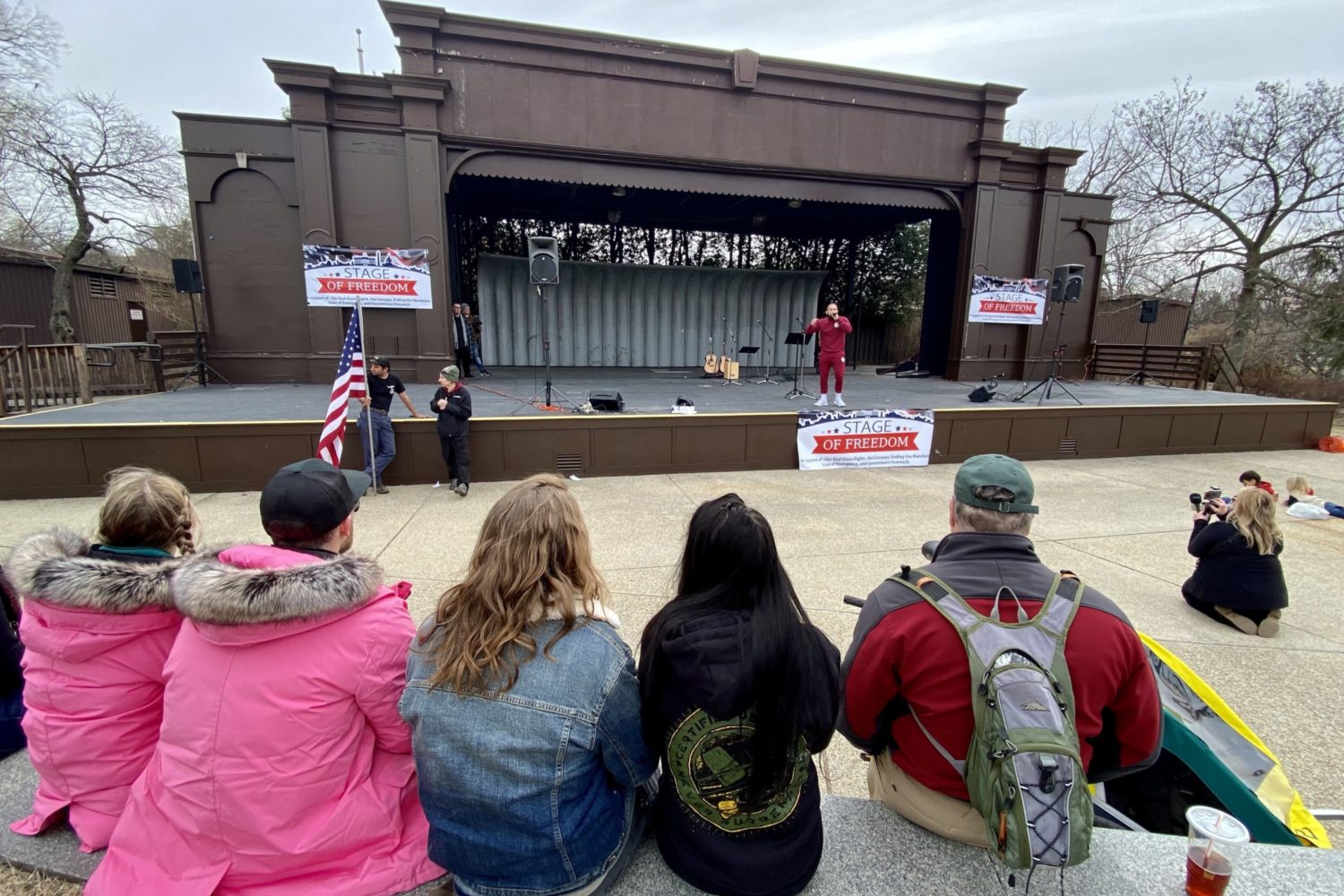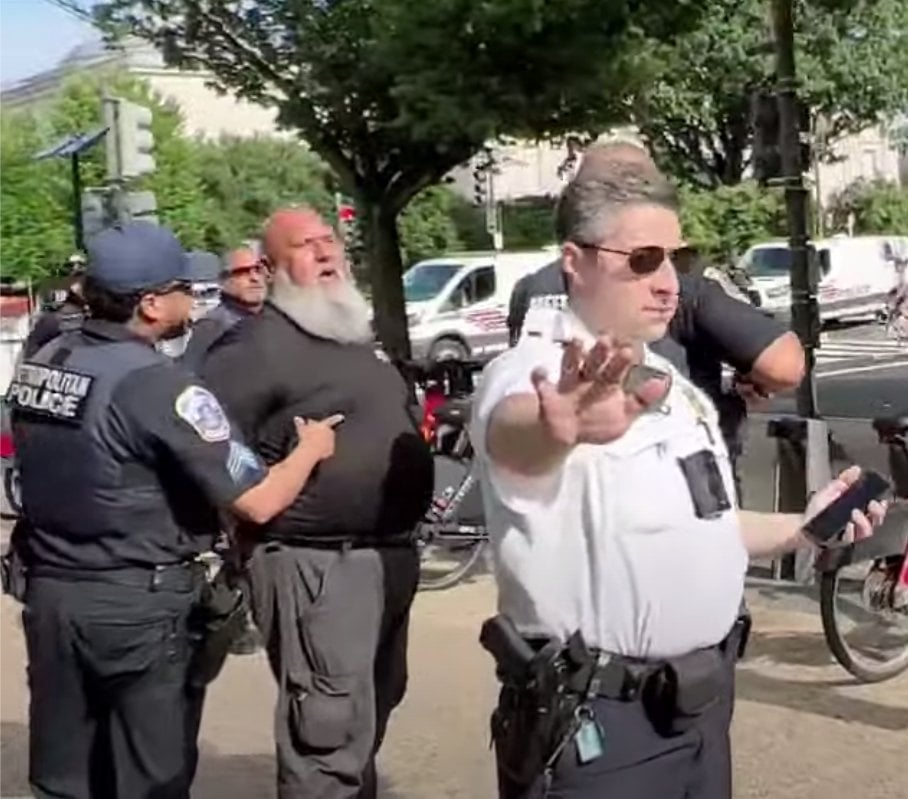There are many good reasons to no longer care about the People’s Convoy. It’s not much of a convoy anymore: The few people who remained with the group after their national movement went kerblooey last Friday have renamed themselves the “1776 Restoration Movement,” dedicated to “restoring a constitutional republic” as well as “morality.” They’re out of money, people are still throwing eggs at their vehicles, and the current headquarters of their imaginary war against Washington, DC, is the parking lot of an auction house in West Virginia.
But the last five years have taught us that it doesn’t take an especially large group of delusional people to cause serious trouble in the DC area—and that open-source intelligence conducted by volunteers can help identify those people. Which is where QRemedy Research comes in. Like Quarks McQuade, it’s a pseudonymous Twitter account that carefully follows the online and real-life antics of the convoy and its people, who tend to believe that they’re at the vanguard of a movement to “retake” the US from…well, if you’re reading Washingtonian, probably from people like you. The hostility many on the far right hold for traditional media means lots of the convoy’s members and fans get their news from live streams and other social media posts. QRemedy Research filters news for the rest of us from that firehose.
🧵 I see ppl say TPC (the pointless convoy, aka the peoples convoy) is small, pointless, and should be ignored so they'll get bored & go away. Those things might be true, but TPC is still dangerous so I track & tweet about them. This is some of dangerous sh*t they've done. 1 of x
— QRR (@QRemedyResearch) May 19, 2022
QRemedy Research began in February 2021 as a collective of independent researchers who look at how misinformation and disinformation fuel extremism. Inspired by game designer Reed Berkowitz’s articles about how much of his type of work he recognized in the sprawling theory—which supposes (in part) that a cabal of Satanists and child rapists has conspired with the Democratic Party and other “deep state” elites to run American politics—the collective is in the process of exploring how games could help people unhook from QAnon. It is also working on providing support, guides, and tools to people who’ve fallen down the QAnon rabbit hole and to those who care about them. (Q-inspired slogans and thought pervaded the convoy’s former camp in Hagerstown, Maryland, when I visited last week.)
One member of QRemedy Research, who I’ll call Ziggy, operates the Twitter account. Ziggy followed the Canadian convoys and the US version and tweeted about it lightly until late March, when they realized there was an appetite for accounts of the convoy’s meetings and its movements. Since then Ziggy has written travelogues about the group’s bizarre misadventures out west—a new edition is in the works—and was able to confirm that one of the convoy members was a registered sex offender. (The convoy kicked him out, but not without mass-tooting a salute as he drove away.)
So why follow these goofballs at all? Ziggy lives in Charlottesville, Virginia, where a white nationalist drove into a crowd in 2017, killing 32-year-old Heather Heyer. “The whole vehicle-based protest thing leaves me a little stressed out,” they say. “One of the ways I deal with stress is reading about the thing, learning about the thing that’s worrying me.”
The convoy at first seemed like an “interesting real-world application” of the collective’s work. People told Ziggy they found it useful to know where the convoy was posted up—whether to avoid the increasingly hostile behavior from convoyers, or just to avoid traffic. “It’s kind of about the research, but it feels like a public safety measure in a lot of ways,” Ziggy says. A DM of thanks, they say, can keep them going, as can a small donation.
The audience is divided between convoy “watchers,” a term for people critical of the far right, and convoy “fans,” supporters who nonetheless find QRemedy Research’s work a useful way to work through the mountain of content its members produce. Ziggy usually has a couple of live streams running in small windows on their computer while they work. “Having a bunch of different things splitting my focus makes each of them less terrible,” they say.
The people who remain in the convoy are best understood as “cryptofascist morality police,” Ziggy says. In addition to the “constitutional republic” idea, they seem hung up on questions about gender and stating as fact conspiracy theories about the World Health Organization. At the very least, Ziggy predicts, “They’re going to continue being really annoying.”
1776 Restoration Movement's goals are- "restoring this nation to a constitutional republic" and "restore morality." He then announced that men should be men, and women should be women. Were invited to visit a local church tomorrow, and will visit a new one each Sunday. 13 of n
— QRR (@QRemedyResearch) May 21, 2022
Through the course of the convoy’s deeply irritating tenure around Washington this spring, I have focused on what’s probably the wrong question: What do these people want? Which is really my way of asking: What will make them go away? But the convoy’s stated goals were never that convincing—most mask and vaccine mandates fell away before they got to Washington, leaving them to claim, implausibly, that they gave up their jobs and drove across the country to oppose the US President’s right to declare a state of emergency.
“The impression I have is they saw how much attention Ottawa got, and also probably how much money Ottawa earned,” Ziggy says, “and they said, ‘We want a piece of the pie.’ ” Indeed, in the sociology of the convoy, some of the live-streamers with huge followings “are like the upper class of the convoy,” Ziggy says, “because the streamers have people that give them money.” Those donations often let the top streamers stay in motels and eat at restaurants while other members have to sleep in their vehicles and chow down on donated hot dogs in church parking lots.
There are tensions between the group’s haves and have-nots, Ziggy says, “but most of the convoy members understand that’s the only real media attention they’re getting. They don’t really have NBC following them around.”
They do, however, have QRemedy Research and their fellow tab-keepers. I asked whether this latest iteration of the convoy is something the average Washingtonian still needs to worry about. “I’m torn about this,” Ziggy says. “I’m not quite as worried as I was when they were out in Sacramento. But I do keep in my mind that you don’t have to be very smart and you don’t have to be very organized to hurt people.”



















